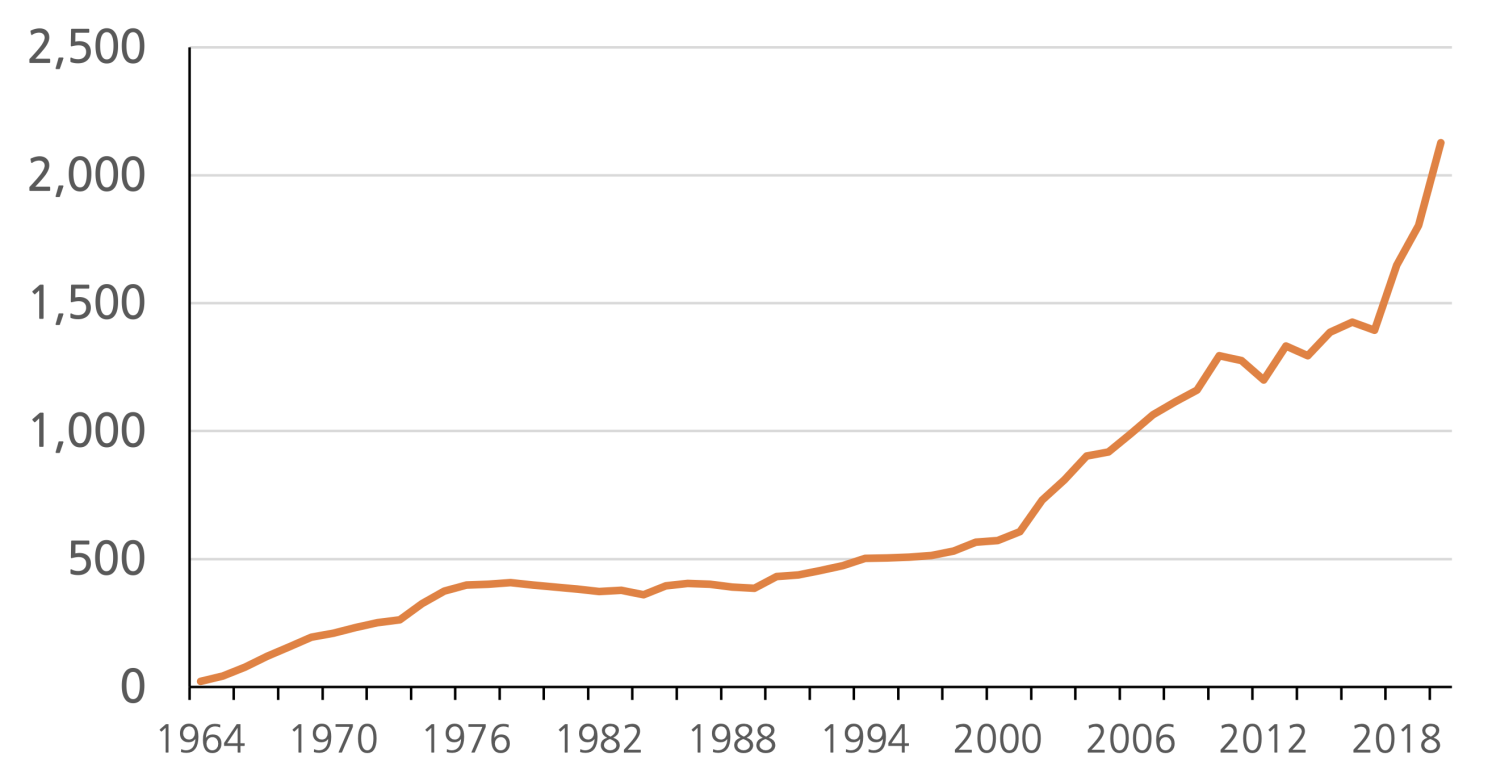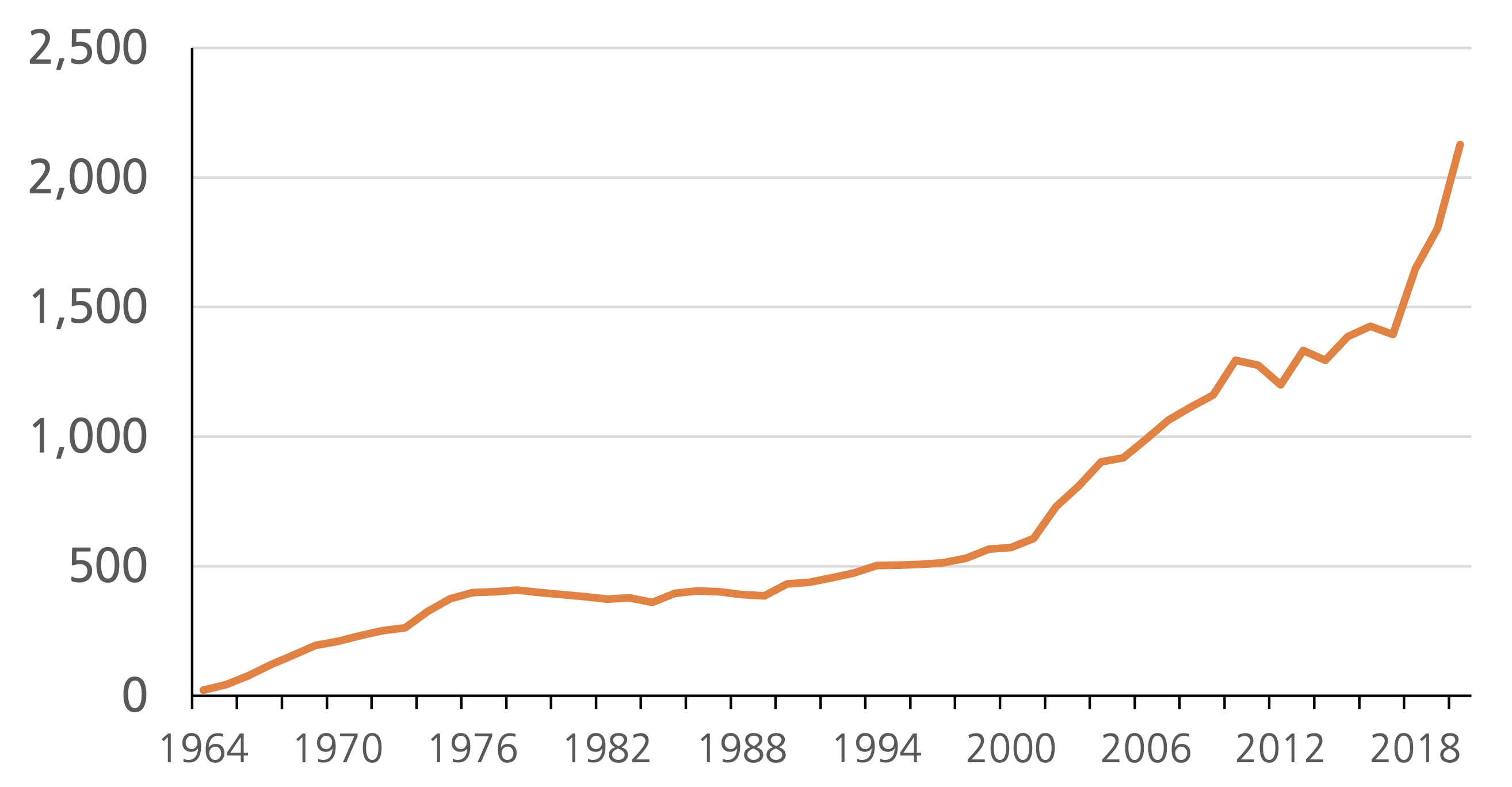Evidence-based policymaking involves making policy decisions grounded on, or influenced by, the best available objective evidence. This column takes stock of recent developments in this field in the US and the UK, and discusses the tension between evidence-based policymaking and democracy. In the US, evidence-based policymaking has been emphasised by the Biden administration, in part to reverse actions by Biden’s predecessor, President Trump. In the UK, despite headwinds from the Brexit referendum, there has also been progress towards more evidence-based policymaking.
The US and the UK are known for their advanced evidence-based policymaking (EBPM), but how is EBPM progressing in these two countries? In fact, in recent years EBPM has experienced a political headwind in both countries. In this column, I explain the recent situation regarding EBPM in the two countries, while taking note of the relationship between democracy and EBPM.
Evidence-based policymaking in the United States
In the US, the Evidence-Based Policymaking Commission Act of 2016 was enacted in March 2016. The act was co-sponsored by then Republican House Speaker Paul Ryan and Democratic Senator Patty Murray. Under the Act, a 15-member bipartisan Commission on Evidence-Based Policymaking was established to consider ways to improve the use of government-held data for evidence-building purposes, while preserving privacy and confidentiality of information.
Under the Trump administration, however, evidence-based policymaking was plunged into jeopardy. In December 2017, President Donald Trump banned the Centers for Disease Control and Prevention (CDC) from using terms such as “evidence-based” and “science-based”, as well as “diversity” and “transgender”. 1
However, the political system in the US is characterised by a strict separation of powers, and it is not easy for the president to stop a Congress-led policy. Despite Trump’s intention as described above, the EBPM Commission proceeded with its deliberations. Its final report was issued in September 2017, paving the way for the Foundations for Evidence-Based Policymaking Act of 2018, to be enacted in January 2019. The act requires each government agency to name a chief data officer, an evaluation officer, and a statistical official to develop a learning agenda (evidence-building plan), and to submit annual evaluation plans.
Specifically, the evaluation officer is responsible for educating agency leaders and staff on evaluation, advising agency leaders on evaluation policy and practice, and coordinating with other stakeholders, the chief data officer, and the statistical official. As a cross-agency forum, the Evaluation Officer Council has been established, comprised of evaluation officers at agencies. The council serves as a forum to exchange information, advise the Office of Management and Budget on evaluation capacity building and other issues, and coordinate and collaborate on areas of common interest. 2
Soon after taking office in January 2021, Democratic President Joe Biden issued a “Memorandum on Restoring Trust in Government Through Scientific Integrity and Evidence-Based Policymaking” to government agencies. “It is the policy of my administration to make evidence-based decisions guided by the best available science and data,” the memorandum stated at the outset, including a number of instructions to emphasise evidence and science in policymaking. Demonstrating the Biden administration’s firm commitment to restoring trust in science and evidence that was damaged by Biden’s predecessor, President Trump, the memorandum is expected to provide a strong tailwind for US evidence-based policymaking.
Evidence-based policymaking in the United Kingdom
In the UK, analytical professions, including government economists, play a major role in EBPM. The number of government economists grew rapidly under the Blair government, which began to promote EBPM (Figure 1). In the 2010s, the number failed to grow due to austerity measures. In the past few years, however, it has shown an upward trend again (Government Economic Service 2021).
Figure 1 Changes in the number of UK government economists


Source: Government Economic Service (2021).
In addition to government economists, analytical professions include social researchers, operational researchers, statisticians, and actuaries. The Analysis Function has been established as a cross-government network of these professionals. 3 It has its secretariat in the Office for National Statistics and is headed by the National Statistician. The purpose of the function is to share good practices and standards, develop innovative methods, and provide impactful analysis across analytical professions.
The UK’s exit from the EU came as a headwind for EBPM. Although the Treasury and others had predicted that Brexit would hurt the UK economy, the national referendum held in June 2016 resulted in a narrow majority in favour of leaving the EU. Voters for Brexit may have been attracted by slogans such as “Take back control” rather than by economic evidence. It was significant that Brexiteers were spreading the narrative that if the UK left the EU, contributions to the EU would be returned to improve public finances. However, that narrative lacked any actual grounds.
Although UK politics was heavily disrupted after the Brexit referendum, progress was seen in terms of EBPM. For example, the Policy Evaluation Task Force (ETF) was established under the Johnson government in April 2021. The ETF, under a joint umbrella of the Cabinet Office and the Treasury, aims to ensure priority is given to robust evidence regarding the effectiveness of policies in government spending decisions. Specifically, it provides advice and support to the Treasury Spending Teams (equivalent to the Budget Bureau of the Ministry of Finance in Japan) on evidence underpinning government departments’ spending proposals and to government departments on designing and delivering evaluations. The ETF also compiled the Magenta Book which serves as a guide on evaluation, along with the Treasury.
The ETF, though a new organisation, is active and expected to lead UK EBPM together with the Analysis Function.
Finally, I would like to discuss the relationship between democracy and EBPM. As seen in the cases of former US President Trump and Brexit, there is a certain tension between democracy and EBPM. While democratically elected leaders frequently ignore evidence, voters also often cast votes without considering evidence. However, it is not appropriate to focus only on the ways in which democracy constrains EBPM. If policy choices are made through evidence-based, democratic deliberations, EBPM can play a role in vitalising democracy. How to develop such a situation will be an important challenge for the future.
Source : VOXeu







































































